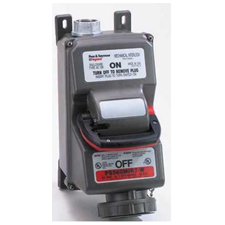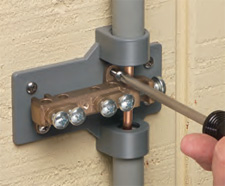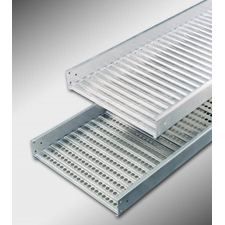GE Industrial Solutions by ABB
Lighting Automation Still Requires a Contactor
Lighting automation has bells and whistles, but a lighting contactor is
necessary to switch the actual lighting circuits. Properly selecting
lighting contactors can save installation and maintenance costs. What
are some of the important considerations in addition to the correct
voltage and current?
Lutron Electronics Co., Inc.
Simple Strategies to Reduce Energy
In new construction, sustainable building practices are becoming the
norm. But even in existing buildings, simple strategies can be
implemented quickly and easily to address inefficiencies, reduce energy
use, improve comfort, and enhance productivity in the space.
Legrand/Pass & Seymour
Less Work to Meet Safety Requirements
Some facilities are changing their requirements for motor and appliance
installations. This could be due to OSHA Lock-out and Tag-out
requirements or NFPA 70E. The change is toward using pin and sleeve
devices instead of having a hard-wired installation.
Safety requirements often have the maintenance person checking for the
absence of voltage before touching. The rules are quite specific and are
enforced by OSHA.
Arlington Industries, Inc.
Bonding vs. Grounding: A Primer
Bonding and grounding are simple concepts, but, unfortunately, they’re
also easily confused with each other. Definitions of one term often get
wrapped up in the definitions of the other, and, before long, one can
begin thinking the words are interchangeable.
“Grounding” refers to the creation of a path from electrical equipment
to the earth. It is intended to protect equipment and help prevent fires
that might occur due to high voltages resulting from lightning strikes,
line surges or unintended contact with higher-voltage lines.
Cope Cable Tray
The Top Factors to Consider When Working on a Data Center
The dependence on quality, reliable data is now more business-critical than ever. Businesses rely on data centers for 24/7 connectivity; to uphold federal codes and regulations; and to ensure resiliency, performance, and more—all so the business can stick to meeting the demands of their own customers. Data centers should also be highly adaptable.










